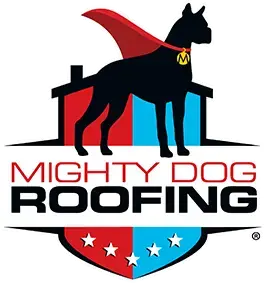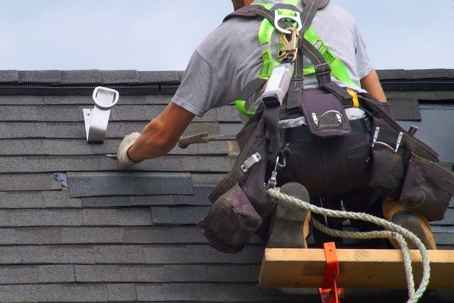Your roof is one of the most important parts of your home, protecting you from the elements and keeping your family safe. However, it’s easy to overlook roof maintenance until a problem arises. Regular roof inspections can prevent costly repairs, extend the lifespan of your roof, and ensure your home remains secure.
In this guide, we’ll cover why regular roof inspections are essential, how often you should have your roof inspected, and what to expect during a professional roof inspection.
Why Regular Roof Inspections Are Essential
Many homeowners wait until they notice a leak before calling a roofer, but by then, damage may already be extensive. Regular roof inspections offer several important benefits:
1. Prevents Costly Repairs
- Small roof problems—like loose shingles, minor leaks, or cracks—can quickly become major issues if left unaddressed.
- Routine inspections catch these issues early, saving you from expensive emergency repairs or full roof replacements.
2. Increases Roof Longevity
- A well-maintained roof can last 20-50 years, depending on the material.
- Regular inspections help ensure that your roof stays in top shape, reducing the risk of premature wear and tear.
3. Protects Your Home from Water Damage
- Leaky roofs lead to water stains, mold growth, and structural damage inside your home.
- Inspections identify weak points before leaks develop, keeping your home safe and dry.
4. Improves Energy Efficiency
- Damaged or missing shingles can affect insulation, causing your HVAC system to work harder.
- A well-maintained roof keeps your home properly insulated, leading to lower energy bills.
5. Helps with Insurance Claims
- If your roof is damaged by a storm, hail, or falling debris, a recent inspection report can help with insurance claims.
- Many insurance companies require proof that your roof has been properly maintained before covering damages.
How Often Should You Have Your Roof Inspected?
The frequency of roof inspections depends on your location, roof material, and weather conditions. Here’s a general guideline:
1. Twice a Year (Spring & Fall)
- Ideal for most homeowners in Fairfield, CT
- Inspections in spring help identify winter damage
- Fall inspections prepare your roof for harsh weather
2. After Major Storms
- If your home experiences strong winds, hail, or heavy snow, inspect for damage
- Look for missing shingles, dented gutters, or leaks
3. Before Buying or Selling a Home
- Roof condition affects home value and insurance eligibility
- A professional inspection provides accurate information about the roof’s lifespan
4. If You Notice Signs of Damage
- Leaks, sagging, or curling shingles require immediate attention
- Moss, mold, or unusual water stains on ceilings may indicate hidden roof damage
What to Expect During a Professional Roof Inspection
Hiring a professional roofer ensures a thorough and accurate inspection. Here’s what you can expect:
1. Exterior Roof Inspection
A contractor will examine the exterior of your roof, looking for:
- Missing, cracked, or curling shingles
- Signs of moss, algae, or mold
- Loose or rusted flashing around chimneys, vents, and skylights
- Sagging areas that indicate structural damage
- Gutter clogs, debris buildup, or poor drainage
2. Interior Inspection (Attic & Ceilings)
- The inspector will check your attic for signs of leaks, including:
- Water stains on rafters or insulation
- Mold or mildew growth
- Proper ventilation and insulation levels
3. Checking Roof Flashing and Seals
- Flashing around chimneys, vents, and skylights is checked for gaps or corrosion
- Seals around roof penetrations (like exhaust pipes) are examined for cracks
4. Identifying Structural Issues
- If the roof is sagging or showing uneven wear, the inspector will check for underlying support problems
- Damaged roof decking may indicate moisture penetration or rotting wood
5. Providing a Detailed Report & Recommendations
The roofer will summarize findings in a written report, detailing any:
- Immediate repair needs
- Potential future concerns
- Estimated roof lifespan
They will offer repair or replacement recommendations based on the inspection results
DIY Roof Inspection Tips for Homeowners
While professional inspections are recommended, you can perform basic visual inspections yourself:
- Check for missing, curling, or cracked shingles from the ground using binoculars
- Look for granule loss (bald spots on shingles) in your gutters
- Inspect flashing around chimneys and vents for signs of rust or damage
- Examine your attic for leaks or water stains after heavy rain
- Clear gutters and downspouts to prevent water buildup
⚠ Safety Warning: Avoid walking on your roof unless you have proper safety equipment. If you suspect damage, call a professional roofing contractor.
Final Thoughts: Why Roof Inspections Are Worth It
Regular Fairfield CT roof inspection tips can help homeowners prevent costly repairs, improve energy efficiency, and extend the lifespan of their roofs.
Key Takeaways:
- Schedule roof inspections twice a year (spring and fall)
- Always check for damage after storms
- Hire a professional roofing contractor for a thorough inspection
- Look out for leaks, mold, and missing shingles
- Keep gutters clean and free of debris
By staying proactive with roof inspections, Fairfield homeowners can ensure their roofs stay strong, safe, and long-lasting.
Would you like professional roofing inspection recommendations in Fairfield, CT? Let us know!


